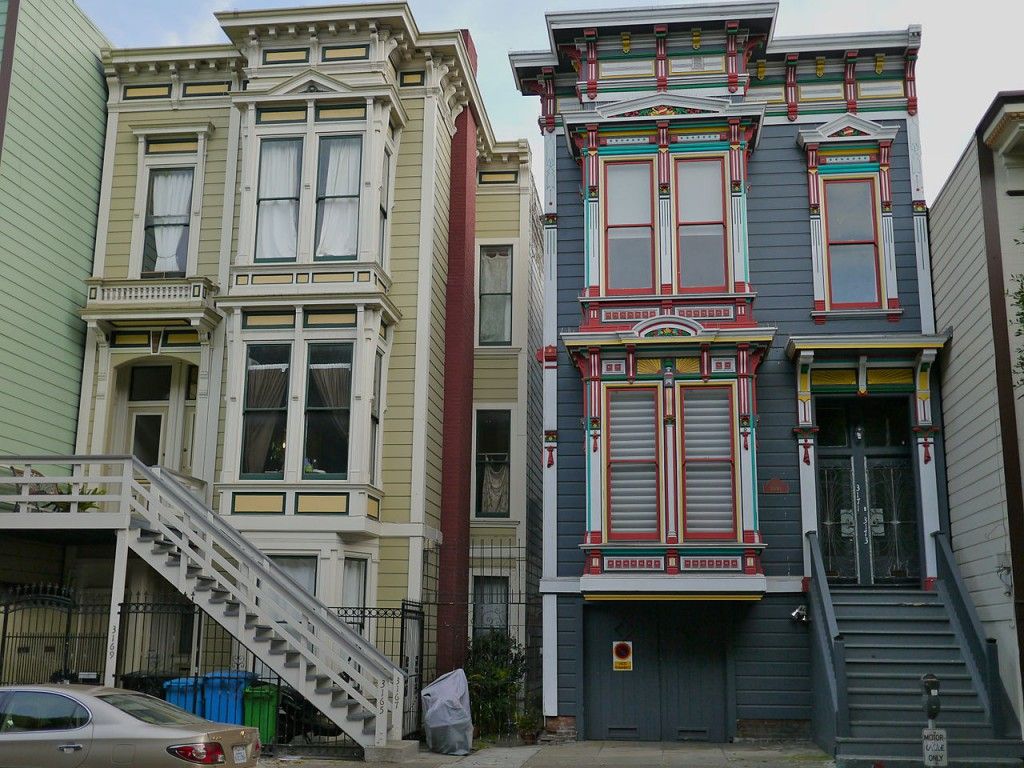Bay Area’s housing desperation keeps growing

Fears that heavy housing costs could undercut Silicon Valley and the Bay Area’s economy have grown steadily in recent years as gains in wages have been outstripped by soaring rents and home prices.
Now a poll of 1,568 registered voters in the region done on behalf of the Silicon Valley Leadership Group and Bay Area News Group paints one of the starkest pictures yet of public dissatisfaction.
Those polled were nine times as likely to say life in the Bay Area and Silicon Valley had gotten worse over the past five years than to say it had gotten better. Forty-four percent of respondents said they wanted to move out of the region because of housing costs, bad traffic and declining quality of life; 6 percent intended to leave in the next year. African-Americans and Latinos were those most likely to want to move elsewhere.
But even 64 percent of homeowners – normally much more content than others in surveys on life satisfaction – said their lives had gotten worse.
The results produced yet another warning from the Silicon Valley Leadership Group, which has cautioned for years that the region will struggle to attract workers for tech and blue-collar jobs alike unless housing costs stop spiraling upward. The group’s CEO, Carl Guardino, told the San Jose Mercury-News that “not working at our weaknesses will come at our own peril.”
School districts launch own projects
Most of the cities in the region haven’t come close to meeting state goals for either affordable or market-rate housing. Recent new state laws meant to spur more housing construction have yet to pay off.
Meanwhile, school districts in and near San Francisco and Silicon Valley are increasingly impatient with the status quo and open to new approaches. Three districts which struggle to keep teachers from leaving for cheaper communities are going into the housing business to ensure teachers have affordable rents.
In Mountain View, the city plans to meet its state affordable-housing mandates by working with Los Gatos-based developer FortBay to build a 144-unit subsidized apartment building for use by Whisman School District teachers and other employees.
The Whisman district’s board backed a $56 million agreement that commits the district to lease the building for at least 55 years. The project could be finished by the end of 2021, depending on the pace of city approvals and other factors. Long-term funding options include bonds or certificates of participation (bond-like measures that don’t require voter approval).
District Superintendent Ayinde Rudolph has also voiced the hope that substantial gifts from philanthropic groups could reduce the cost to Whisman.
In Daly City, the Jefferson Union High School District is using a $33 million voter-approved bond to build 116 apartments for teachers and other employers.
The Palo Alto Unified School District is evaluating how to fund a 120-unit project for its employees.
Legislation signed by Gov. Jerry Brown in 2016 allows the districts to give housing preferences to their employees. It also gives them access to state and federal low-income housing credits.
Can districts afford housing subsidies?
A recent UC Berkeley study of teacher housing issues in Berkeley Unified showed strong support from employees for a similar approach in their district. More than half reported difficulty paying rent.
But to date, no study has examined the long-term financial feasibility of having districts provide subsidized housing, as is contemplated by the three districts pursuing construction plans.
Employee compensation already consumes 85 percent or more of most school districts’ general fund budgets. With districts’ pension contribution rates more than doubling from 2014 to 2020 as part of the bailout of the California State Teachers’ Retirement System, dozens of districts are pleading poverty.
Chris Reed
Chris Reed is a regular contributor to Cal Watchdog. Reed is an editorial writer for U-T San Diego. Before joining the U-T in July 2005, he was the opinion-page columns editor and wrote the featured weekly Unspin column for The Orange County Register. Reed was on the national board of the Association of Opinion Page Editors from 2003-2005. From 2000 to 2005, Reed made more than 100 appearances as a featured news analyst on Los Angeles-area National Public Radio affiliate KPCC-FM. From 1990 to 1998, Reed was an editor, metro columnist and film critic at the Inland Valley Daily Bulletin in Ontario. Reed has a political science degree from the University of Hawaii (Hilo campus), where he edited the student newspaper, the Vulcan News, his senior year. He is on Twitter: @chrisreed99.
Related Articles
Immigration reform all but dead for 2013 and 2014
Shocked by their poor showing in the 2012 presidential election, Republicans looked for ways to change their brand. The first
Steinberg appeases educators
JUNE 17, 2010 By EVELYN STACEY On June 14, Senator Darrell Steinberg held a press conference at Edward Kemble Elementary,
State agency loses again in bid to expand clout of collective bargaining
For the second time in five years, state courts have rejected attempts by the California Public Employees Relations Board to



